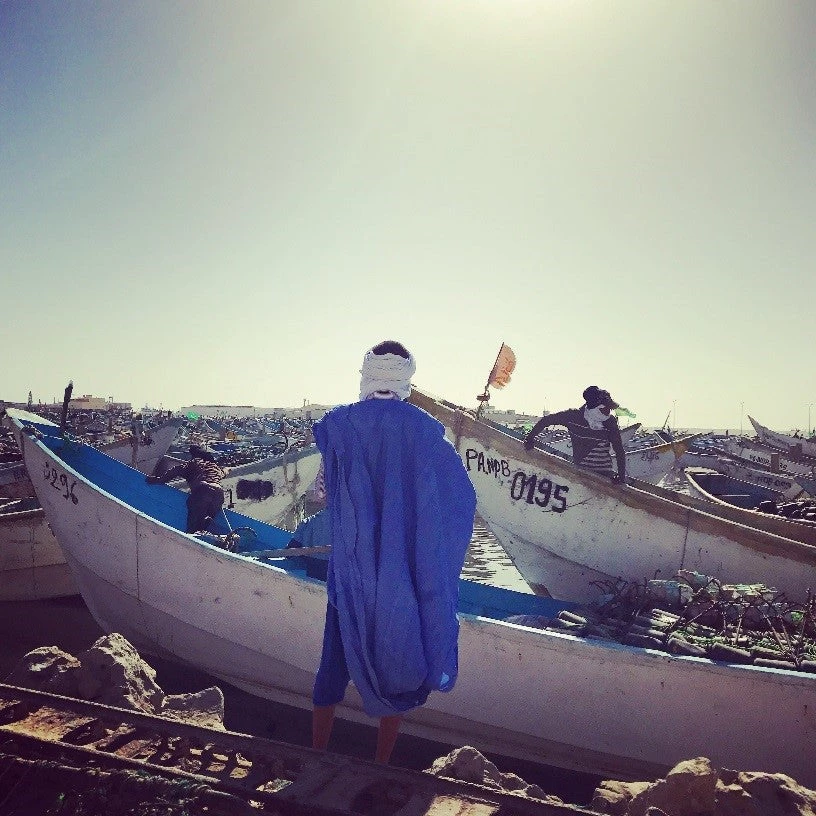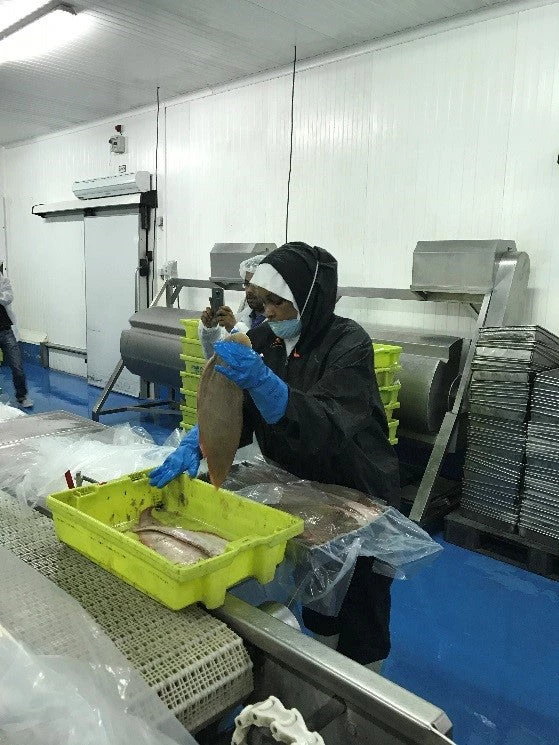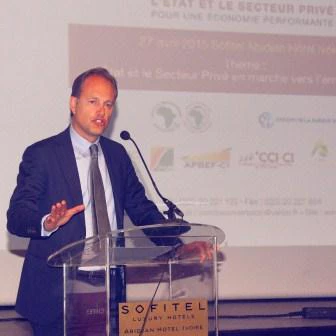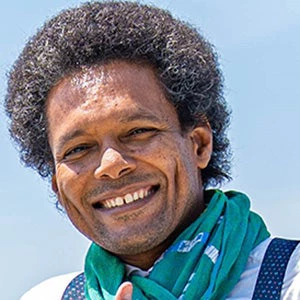
Nouadhibou’s artisanal fishing port (Photo by Steve Utterwulghe)
In the Northern tip of Mauritania lies the Nouadhibou Free Zone. Created in 2013 with financial and technical support from the World Bank, the first international partner to do so, it benefits from a 110-kilometer coastline on the Atlantic Ocean and an exclusive economic zone of 230,000 square kilometers. Its waters are among the most seafood-rich in the world, with a capacity of 1,500,000 tons per year.
The free zone offers investment opportunities in industries, logistics, tourism, retail business and tertiary sectors. However, creating a competitiveness hub in the fishing sector is one of the paramount objectives of the zone, given the importance of the sector for the Mauritanian economy. It represents 5.8 percent of the GNP, accounts for 18 percent of the total exports, and contributes to an estimated 40,000 jobs.
In March 2016, the World Bank approved the Nouadhibou Eco-Seafood Cluster Project (Projet Eco-Pôle Halieutique) with an International Development Association (IDA) grant of $7.75 million out of a total project amount of $9.25 million.
The objective of the project is to support the development of a fishing-sector hub in the Nouadhibou Free Zone aimed at promoting the sustainable management of fisheries and creating prosperity for the local communities.

A worker at the Free Zone certified Star Fish factory (Photo by Steve Utterwulghe)
While the Free Zone has already achieved critical results — such as the attraction of a few international investors in food processing and fish exports, the completion of commercial viability studies of the deep-seawater port and the airport, and the elaboration of a draft law on public-private partnerships (PPPs) — some constraints affecting more specifically the fishing sector remain. They include, among other things, the lack of productive diversification, an integrated value-chain, know-how about certification and international standards, and the octopus fishing quota system.
In addition, the lack of structured dialogue among the various public and private stakeholders in the fishing sector had been identified as a fundamental impediment to the development of the hub’s competitiveness.
Louise Cord, the World Bank Country Director, who recently visited Nouadhibou to officially launch the project with the President of the Free Zone, commended the Free Zone Authority for creating a Public-Private Dialogue (PPD) Task Force in 2015.

Star Fish CEO Elnamy Yacoub; Nouadhibou Free Zone President Mohamed Ould Daf; World Bank Country Director Louise Cord (Photo by Alexandre Laure)
The PPD Task Force is comprised of a dozen members of the private and public sectors and civil society. Its main objective is “to inform, support and guide the implementation of the Free Zone’s fishing-sector competitive hub.” It has been meeting regularly on a bimonthly basis under the guidance and coaching of Haroun Sidatt, a Mauritanian PPD specialist. This effort has been funded by the World Bank Group's Trade and Competitiveness Global Practice’s Competitive Industries and Innovation Program (CIIP).
Cord calls the PPD mechanism “really innovative.” It had not been done in Mauritania, in the fishing sector, or in a zone. It is also unusual to have civil society represented and genuinely included in the technical discussions, ranging from the inclusion of women in the value chain to environmental issues. The biggest achievement so far, however, has been the trust built in the process among the stakeholders. The first year had required a great deal of patience, skills, and support from the coach, and the team at large.
The second phase of the PPD process will dive into the more operational aspects of the structured-dialogue mechanism. The private sector will have to organize itself even better to identify the constraints affecting the competitiveness of the sector in the Free Zone, to prioritize them, and to provide some evidence-based analysis to the task force. Solutions will have to be submitted and the Free Zone Authority will have to provide answers within this trust-enabled platform. The stakeholders will also have to ensure that viable solutions are found so that women and other marginalized groups, such as the artisanal fishermen, can benefit from the growth process.
Public-Private Dialogue doesn’t follow any rigid implementation framework. It can help improve the design of horizontal policy reforms at the national or regional level. But it can also be a tremendously useful tool in spatial growth strategies to help address governance and market failures, both between and within industries.
With PPD mechanisms for spatial solutions used in a growth corridor in Mozambique, growth poles in Madagascar, agro-tourism clusters in Grenada and St Lucia, cities in Morocco, and now in the Nouadhibou Free Zone of Mauritania, the World Bank is pushing the PPD agenda toward exciting and innovative horizons.
For more information:
Alexandre Laure, Team Leader: alaure1@worldbank.org
Steve Utterwulghe, Global Lead, Public Private Dialogue: sutterwulghe@ifc.org



Join the Conversation